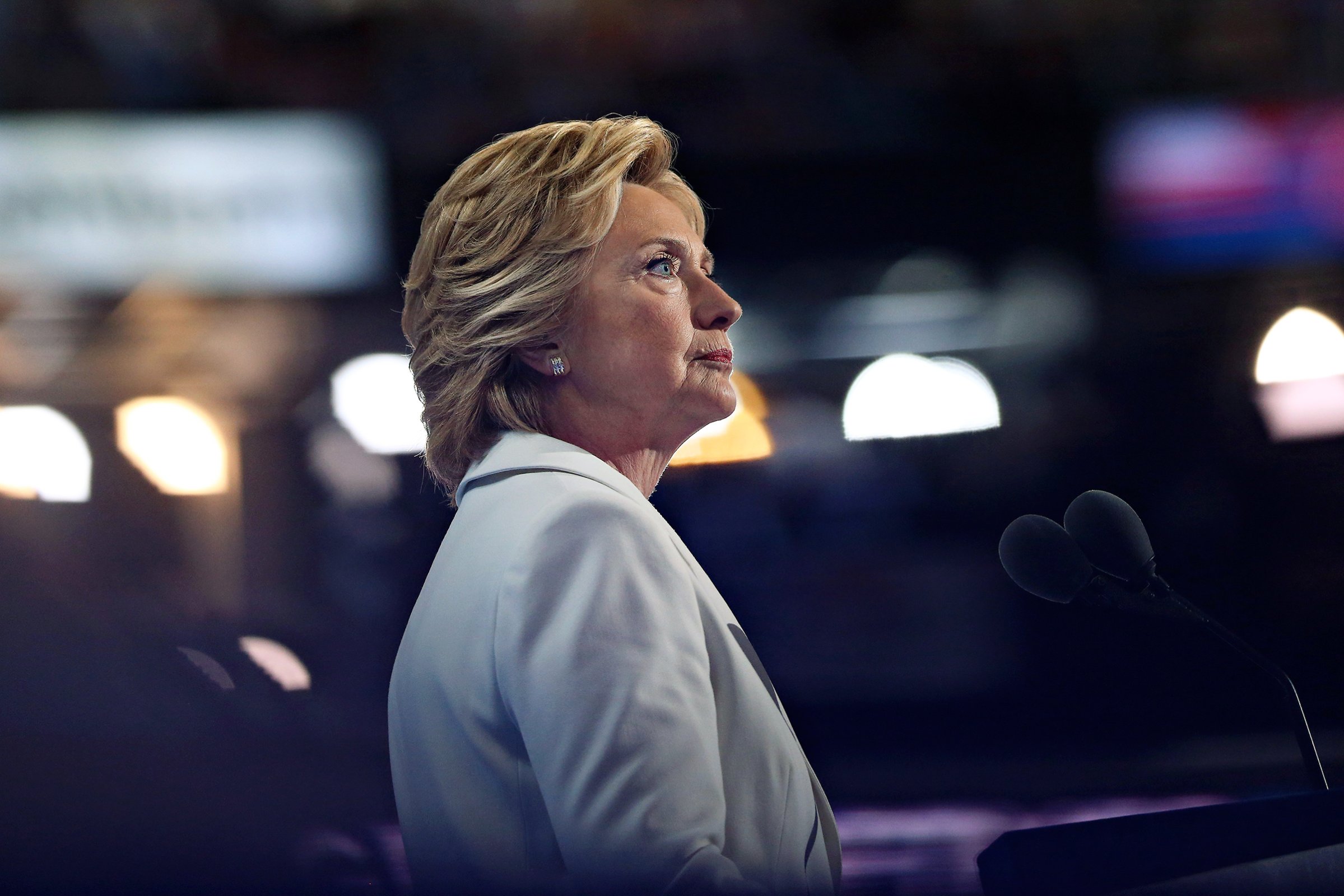
Hillary Clinton has spent 40 years trying to be liked. In her new memoir, What Happened, she describes the myriad ways she has tried to modulate herself to fit our expectations of her, which is a tidy but long list of all the usual impossible standards women face. She changed her name, her clothing and her demeanor in response to criticism and rejection. She spent what adds up to a month of time on the 2016 campaign trail having her hair and makeup done; if she showed up without having those things done, she got slammed. She even hired a linguistics expert so she could learn to rev up a crowd by shouting while not sounding too high-pitched. (That, she concludes in the book, turned out to be impossible.) Some people might view these studied alterations as signs of inauthenticity. But judging from What Happened, the most candid of her three memoirs, it seems to be the price she paid to be “likable” to a country that was not, in the end, ready for Hillary.
Unfortunately, likability is too often a woman’s most valuable currency, trumping competence and worthiness. A hint of unlikability can undermine a woman’s success like nothing else. Studies show that the higher you aim, the harder it is to be seen as likable if you’re a woman. And what’s higher than the presidency? Sure, this woman is admired and even loved by millions. But the forces on the other side of that equation proved stronger and louder. For many, just the sight of her sparks a kind of rage that can’t be explained in the usual political terms.
And yet time after time, Clinton stepped up to face rejection and unimaginably cruel comments about her body and soul. In What Happened, she describes the decision to run for President again as like going back in front of a firing squad. People often ask her why she wanted to go through all that. She writes that nobody questions a man’s desire to win, so why question hers? Men also don’t get the utterly personal hatred that a woman does when she dares to aim too high.
I’m starting to think that Clinton is like an avatar in a video game in which the goal is to slay sexism. She has explored the extreme boundaries of likability and female ambition, living out some of our best hopes and worst fears, in one year. Take her attendance at Donald Trump’s Inauguration. She had to stand with the previous President, whom she feels she let down profoundly by losing, while facing thousands of people who despised her on a scarily personal level for daring to run in the first place. As she writes, the crowd could have started to chant “lock her up” as they did at almost every Trump rally. And it was entirely possible that the new President would egg them on as he had before.
I wouldn’t have risked that kind of public rejection for anything except my kids. But I’m not Clinton. I don’t know if watching her resilience makes it harder for a woman to imagine running for President or easier now that she’s publicizing the realities of our sexism.
Then there’s the guilt. Clinton is clearly devastated to have let down the girls at her rallies, her campaign staff, the very old ladies who were born before women’s suffrage and finally got to vote for a woman, and even her now gone parents. She writes about how she’d test her father’s unconditional love as a kid by asking him if he’d love her even if she did something bad or failed. He always said he’d love her no matter what, but in the dark days after the election she imagines asking him, “Well, Dad, what if I lose an election I should have won and let an unqualified bully become President of the United States? Would you still love me then?”
It is a Greek tragedy, and an utterly American one, that the first female presidential candidate nominated by a major party came so close to an empirical win but in the end lost entirely. And what a personal reckoning. “I have come to terms with the fact that a lot of people–millions and millions of people–decided they just didn’t like me,” she writes. Yet the book itself is proof she’s still willing to confront the firing squad. Maybe this time they’ll put down their weapons and listen.
Clinton writes that she plans to stay alive to see the first woman become President. When I read that, I envisioned her at age 80, back on that Inaugural podium in a white pantsuit. But I don’t imagine she’ll be worried about hateful chants. This time, maybe all those women and girls from all those marches will be back to finally cheer on the first female President but also the first woman who almost was.
More Must-Reads from TIME
- Why Trump’s Message Worked on Latino Men
- What Trump’s Win Could Mean for Housing
- The 100 Must-Read Books of 2024
- Sleep Doctors Share the 1 Tip That’s Changed Their Lives
- Column: Let’s Bring Back Romance
- What It’s Like to Have Long COVID As a Kid
- FX’s Say Nothing Is the Must-Watch Political Thriller of 2024
- Merle Bombardieri Is Helping People Make the Baby Decision
Contact us at letters@time.com